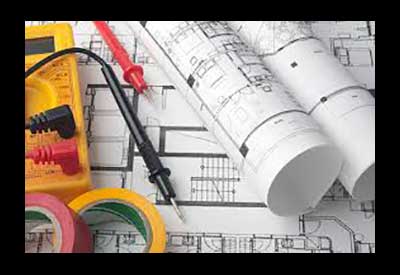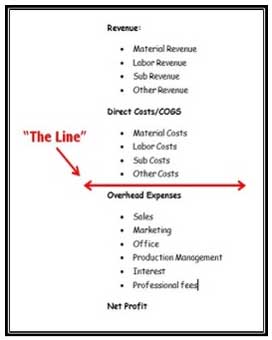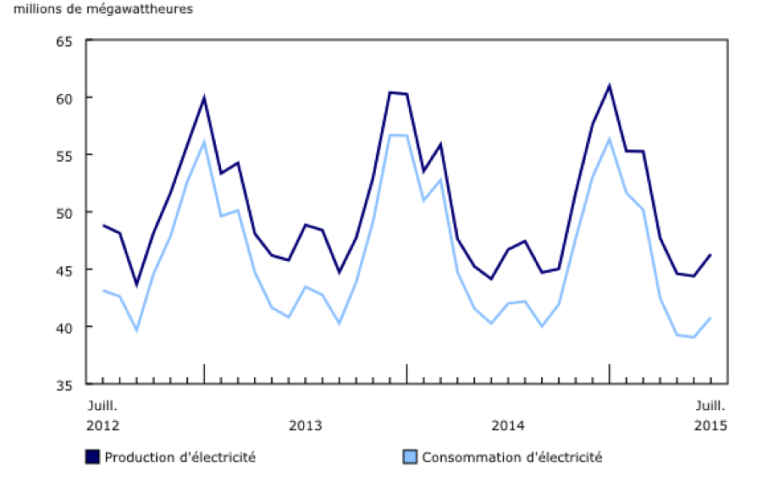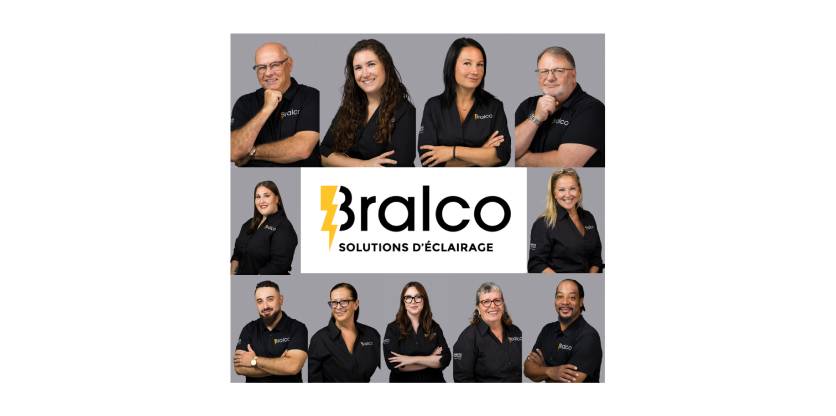Comparer votre marge de profit avec celle de vos concurrents est une pratique à risque

Plusieurs entrepreneurs déterminent leur structure de prix en copiant ou imitant ce que leurs concurrents font au lieu de déterminer les besoins réels de l’entreprise au niveau des marges de profit. Comparer votre marge de profit avec celle de vos concurrents est une pratique non seulement inutile, mais risquée si vous ne savez pas quels outils ils ont utilisés pour établir leur seuil de rentabilité. La décision sur les coûts et les dépenses va au-delà de la simple marge bénéficiaire et varie d’une entreprise à l’autre. La planification des profits est différente elle aussi d’une entreprise à l’autre. Voici des éléments à inclure dans votre feuille de calcul.
Some contractors determine their pricing structure by copying what other businesses do rather than figure out what mark-up their business actually needs to use. Comparing or copying mark-ups or margins is pointless and very risky without knowing how they were determined. The decision about what costs or expenses go above or below the gross profit line can be different at different companies. Therefore the mark-up each company will need to use to cover overhead costs and planned net profit will be different. Let me explain and clarify.
First, here are the terms you need to know.

• Above the line = direct project costs (materials, labour-including burdens, subs and equipment costs)
• Below the line = overhead related expenses
• Indirect costs = overhead expenses plus net profit added together
Here is the simple mathematical formula for determining your mark-up
The businesses’ total indirect costs divided by the expected direct costs for an anticipated volume of work equals the required mark-up % to add to estimated direct costs.
This assumes profit is a required expense of doing business!
Let’s do an example
The set-up: assuming a contractor is running a $900,000 a year business with the following above and below the line expenses:
$300,000.00 (of indirect cost: overhead + net profit) ÷ $600,000 (of direct cost: materials, labour and subs) = 50% mark-up
Proving the math works: So, $600,000 of estimate direct job costs marked up by 50% = $900,000 (provides a sell price that includes $300,000 of gross profit to cover the indirect costs of overhead and net profit)
Therefore:
One contractor can put something like vehicle expenses or workers compensation premiums related to field staff above the line. Another might put the same items below the line. These two contractors may get to the same exact selling price but will be using different mark-ups to get there.
Other important considerations to be aware of
It also important to know that fewer than 20% of contractors actually know the true costs of being in business.That means that 80% or more are using what has been referred to as the WAG or “Wild Ass Guess” method when it comes to deciding what mark-up they use to price the projects they sell. I call that “contractor roulette.”
If that isn’t shocking enough for you,keep in mind that about 9 out of 10 contractors go out of business within 10 years. Your chances of copying a successful contractor’s mark-up are therefore about one out of ten. And the odds of copying the wrong mark-up get even greater if you don’t know how, or even if, that contractor actually calculated his required mark-up or did the WAG.
So here’s the bottom line regarding mark-up
You need to do the math or you won’t know whether you are buying or selling jobs! Your ultimate success hinges on knowing the true costs of being in business and how to profitably price the work you sell.
So, what about you and your business?
The choice is yours. You can get the help you need to figure out what you need to charge for your work so you can be successful. Or, you can continue using the Wild Ass Guess Method and go to bed every night wondering if and when you will join the 90% who go out of business.
 Shawn McCadden is a consultant, educator and speaker for the remodelling industry who offers business consulting and coaching services for remodelling business owners who want more for and from their businesses and their lives.He also consults with construction-related product manufacturers and suppliers, helping them understand, find, educate and better serve remodelers. Check out Shawn’s website — and blog.
Shawn McCadden is a consultant, educator and speaker for the remodelling industry who offers business consulting and coaching services for remodelling business owners who want more for and from their businesses and their lives.He also consults with construction-related product manufacturers and suppliers, helping them understand, find, educate and better serve remodelers. Check out Shawn’s website — and blog.
Also check out these Shawn McCadden articles published in LME:
– Ne pas sous-estimer le potentiel de votre système d’estimation
– 3 étapes faciles pour couvrir le temps d’un employé improductif
– Ne faites pas courir des risques inutiles à votre entreprise avec une marge de profit improvisée
– Plan de participation aux bénéfices pour les entrepreneurs
– Montrer l’exemple: amener les employés à penser comme des propriétaires












